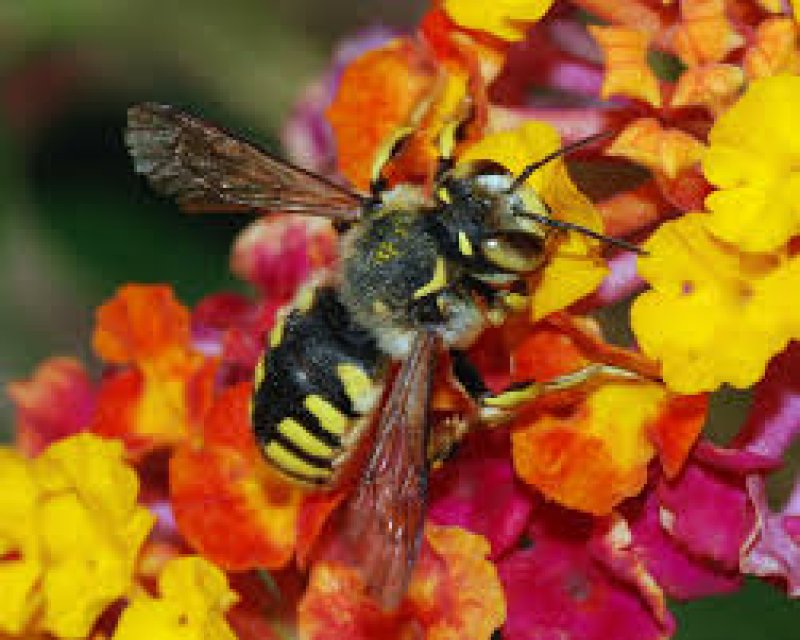In my last piece I made the case that the rumors of honeybee extinction have been greatly exaggerated, but honeybees are still suffering larger than usual losses, and some wild bees are probably going extinct.
So what is it that’s hurting bees? And what are our options for helping them? Scientists have come to a vague conclusion that the cause of colony collapse disorder is multifactorial: the bees are weakened (by mites, and chemicals); they get lots of diseases; and they die.
There’s no evidence that GMOs are hurting pollinators directly, and solid evidence that they are hurting pollinators indirectly. Randy Oliver, a beekeeper based in the California foothills of the Sierra Nevada, looks at the potential for direct effects in greater depth — you can cross-examine his conclusions here — but the insecticide in insect-resistant GMOs only targets a select group of insects, mostly caterpillars, and not bees. If anything, insect-resistant GMOs have been good for bees, because they have allowed farmers to reduce the amount of insecticide they use. Herbicide-tolerant GMOs, on the other hand, have allowed farmers to control weeds much more effectively — but for the bees, those weeds used to be dinner.
A lot of things are ganging up on bees. Can we rank those factors? “Yes, it is multifactorial, but if you took away the varroa mite, the other factors wouldn’t be nearly as bad,” Nordhaus said. The next big problem is probably lack of nutrition, meaning lack of flower-filled land, she said.
The GLP aggregated and excerpted this blog/article to reflect the diversity of news, opinion and analysis. Read full, original post: Why are bees hurting? A lineup of suspects































